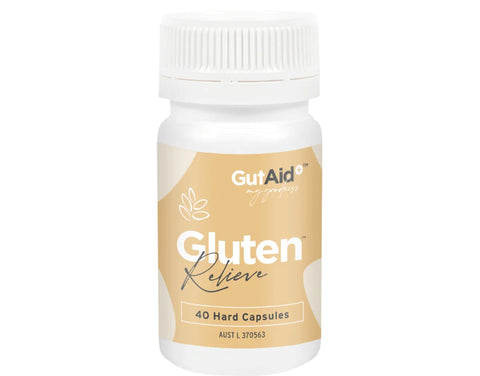Modern-day factors, such as processed foods, increased stress, and a lack of activity, contribute to gut health depletion. When you have poor gut health, it can be especially tough to develop the lifestyle you desire.
Without a doubt, diet and lifestyle are the cornerstones of gut health. Gut Health Supplements can also work synergistically to support gut health and proper digestive function.
Most doctors will agree that the number of patients reporting GI discomfort and other more serious issues is increasing. Many of these issues can be traced back to high levels of ongoing stress, an increasingly processed diet, less physical activity, and living in an overly sanitised environment. If you are suffering from the same problem, keep reading this article is for you.
Continue reading to find out what are the best digestive support supplements available that you can take to give a necessary boost to your health.

Best Supplements For Gut Health
Probiotics: Probiotics are live microorganisms that occur naturally in the gut. They are available as supplements and whole foods and play numerous roles in immune health and overall homoeostasis. The GI tract is teeming with trillions of different bacteria—the beneficial bacteria in the gut are known as probiotics. The following are 10 super healthy probiotic foods.
- A type of yeast called Saccharomyces boulardii
- Yogurt
- Kefir
- Kimchi
- Cheese
- Traditional buttermilk
- Natto, a food made from fermented soybeans
- sauerkraut
- Tempeh, a popular meat substitute
- Fresh, sour dill pickles
Prebiotics: Probiotics are commonly taken as a supplement for higher dosing and can be obtained from fermented foods. Prebiotics are best obtained through food, specifically Jerusalem artichoke, garlic, onions, asparagus, green bananas, and green plantains.
Digestive Enzymes: Digestive enzyme supplements have grown in popularity due to their claims of treating common conditions such as gut irritation, heartburn, and other ailments.
Digestive enzymes are small proteins that act on specific molecules to break down foods.
It's critical to understand why your body lacks proper digestive enzymes. An imbalance of gut bacteria, intestinal permeability, food allergies, or stress could all be underlying causes. Ideally, you'll first determine what's causing your problem before selecting an appropriate digestive enzyme supplement.
If you have bloating, gas, discomfort after eating, reflux, loose stools, trouble going to the bathroom, or undigested food in your stools, talk to your integrative doctor about digestive enzymes.
Psyllium: Psyllium is frequently used to treat constipation. This is because it retains water in the intestine, making bowel movements easier.
Psyllium can also have an impact on the gut microbiota, promoting healthy bacteria. This is especially true for people who suffer from constipation.
What is The Most Effective Supplement for Gut Health?
Among the most popular supplements are collagen, prebiotics and probiotics, turmeric, and melatonin. However, always check with your doctor before taking any supplements.
What Can I Do To Improve The Health of My Gut?
A healthy gut can be supported by a diet rich in fermented foods and fibre from colourful fruits and vegetables, regular exercise, and stress management. Start small with diet changes and work your way up if you want to live a healthier lifestyle.
What Are The 5 Types of Food for Gut Health?
The following are 5 super healthy foods.
- Probiotic Foods Like Kimchi, Kombucha and Kefir
- High-Fiber Foods Like Beans, Oats and Fruits
- Prebiotic Foods Like Asparagus, Bananas and Garlic
- Synbiotic Foods Like Yogurt Paired With Blueberries
Conclusion: Whether you have digestive issues or not, adopting habits and taking supplements for gut health benefits every body system. A healthy gut works in tandem with the rest of the body to keep you healthy, and many modern-day stressors make maintaining gut health difficult. Would you like to learn more about organic health supplements? Stay tuned to HealthBar for more updates.
